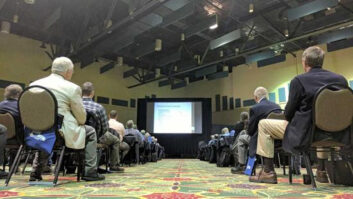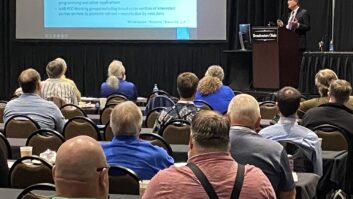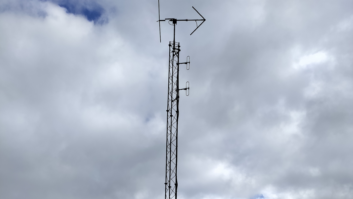The author is owner and general manager of WLYB(FM) and president of Blackbelt Broadcasting in Livingston, Ala.
In 2013, we signed WLYB(FM) on the air in a community that didn’t have radio service.
Our permit was part of an early FCC auction.
When we visited Sumter County, Ala., one of the poorest counties in the nation, we saw an opportunity to serve this community; we were willing to invest in it and take the risk.
Growth has been slow. Many small businesses struggle (and close) from month to month. Livingston doesn’t have a car dealership, furniture store, hospital or many other businesses that are vital to a community.

Nearby York, Ala., has a hospital that has been on the brink of closure. The local grocery store closed over a year ago, and you’ll find only one fast food restaurant. With the exception of an insurance agency and a hardware store, downtown business is nonexistent.
Rural internet service is poor. Radio is still a primary source of community information.
WLYB(FM) stays on the air by reaching out to many communities, but a lack of a full-strength signal has been an issue. Many communities were abandoned by their stations, which fled to serve large markets years ago. But we are there for community events and promote small towns that wouldn’t otherwise have a voice.
Many residents travel to communities several miles away. Our station informs listeners on commerce options that are not available elsewhere. In some cases, we share information about community services that are important to the health and well-being of our residents — services that many wouldn’t know about if it weren’t for our station.
Signal and reception challenges had been a hindrance for us. Tropospheric ducting, a limited signal (3.4 kW), and limited tower choices all have been issues. But a listener doesn’t understand why some days they can hear us and other days they can’t. We have lost a few advertisers due to signal issues. With a limited amount of business and services available, this has been devastating to our operation.
Hundreds of other stations also face this challenge. They are limited because of FCC rules that are now outdated. It is time to save many small market stations and implement the C4 class.
My station will not bump a translator off the air, interfere with any LPFMs or take revenue or market share from my competition. What it would do is allow us to serve all of our surrounding communities — and yes, serve the public interest.
Many Class A stations are at a crossroads. The proposed C4 Class will allow many stations to continue serving small communities, where radio is still a vital part of everyday life.
The proposed Class C4 is a critical lifeline for our station.
The FCC is accepting comments on the FM Class C4 proposal, MB Docket No. 18-184, through Aug. 13, and reply comments to Sept. 10.












